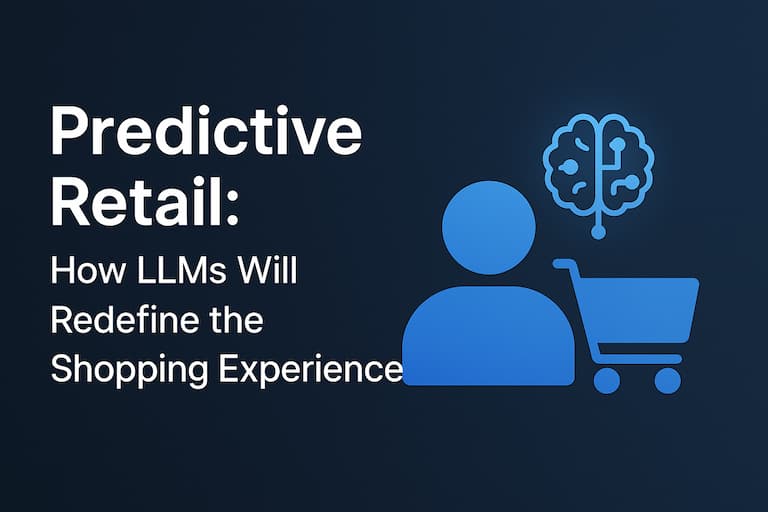
Predictive Retail with LLMs
LLMs are not just tech upgrades — they are cognitive co-pilots redefining how retailers operate, compete, and grow.
In the fast-evolving landscape of retail, the next big disruptor isn’t a flashy storefront or a viral campaign—it's a quiet powerhouse running behind the scenes: Large Language Models (LLMs).
LLMs like GPT-4, Gemini, and Claude are transforming how retailers interact with customers, predict demand, and optimize every stage of the consumer journey. But what exactly does this mean for the future of shopping?
Let’s dive into how LLMs are set to revolutionize predictive retail and create a seamless, personalized, and intelligent shopping experience.
1. 🎯 Hyper-Personalized Product Recommendations
Traditional recommendation engines use structured data like purchase history or category filters. LLMs go several steps further by:
- Interpreting natural language inputs like: “I’m looking for something elegant but casual for a beach wedding.”
- Understanding context, mood, and emotion behind customer queries.
- Generating intent-driven suggestions based on current trends, style guides, or even social media preferences.
With this level of intelligence, retailers can offer recommendations that feel like they came from a personal stylist rather than an algorithm.
2. 🤖 Conversational AI Shopping Assistants
Chatbots used to be limited to scripted responses. Now, LLM-powered assistants can:
- Remember your preferences across sessions.
- Provide multi-turn conversations that mimic real salespeople.
-
Help with complex queries like:
“I bought a saree from your store last Diwali. Do you have anything similar but in pastel shades this time?”
This elevates online shopping from a transaction to a relationship-based experience.
3. 📦 Intelligent Inventory Management & Demand Forecasting
Retailers often struggle with overstocking or understocking. LLMs can change that by:
- Analyzing social media chatter, product reviews, and seasonal search trends.
- Identifying upcoming fashion patterns before they hit mainstream.
- Helping buyers make data-driven inventory decisions in real-time.
This turns unstructured customer data into predictive insights that optimize inventory, reduce waste, and increase sales.
4. 💰 Dynamic Pricing & Smart Promotions
Imagine an AI that knows:
- What discount would convert a Gen Z customer browsing at midnight.
- Which email subject line will lead to a click-through.
- When to offer bundle deals vs. free shipping.
LLMs can simulate buyer behavior across demographics and generate messaging that’s contextual, persuasive, and timely—leading to higher conversions without mass discounting.
5. 📝 Instant Review Analysis & Product Improvement
Why wait for quarterly feedback reports? LLMs can:
- Summarize thousands of customer reviews in seconds.
- Spot frequently mentioned issues or praises.
- Suggest product improvements or highlight bestsellers based on sentiment.
This allows for rapid iteration and a customer-led design philosophy.
6. 🖼️ The Future: Multimodal AI for Immersive Shopping
The next frontier? Combine LLMs with vision models and voice inputs to create multimodal experiences:
- “Show me products similar to this dress I saw on Instagram.”
- “What did I buy last festive season that my sister liked?”
This blends visual recognition, natural language, and behavioral memory into one seamless assistant.
🔁 Conclusion: AI That Feels Human
LLMs are more than tools. They are capable of understanding customers the way a human would—with empathy, memory, and context.
In the era of predictive retail, this means:
- Customers feel seen and heard.
- Retailers gain loyalty, efficiency, and precision.
- The line between digital and in-store experiences starts to blur.
Retail is no longer just about selling—it's about predicting,
personalizing, and building trust.
And LLMs are the engine powering this transformation.
💬 What do you think?
Are we ready for an AI that shops with us—not for us?